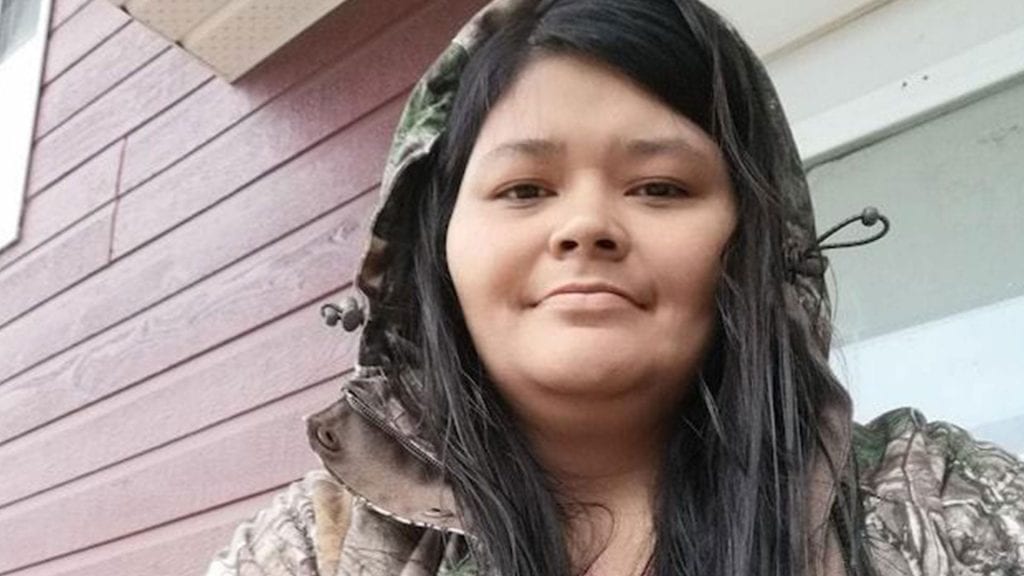
Joyce Echaquan recorded nurses making racist comments about her as she died in hospital in September.
A two-day virtual dialogue on ending racism against Indigenous people in the health-care system wrapped up Thursday evening with pledges from Ottawa but little clarity on what solutions might look like.
Indigenous Services Minister Marc Miller announced plans to kickstart the engagement process on co-developing new Indigenous health legislation with First Nations, Inuit and Metis communities.
The goal is to increase Indigenous control over development and delivery of health-care services.
The pandemic proved “the outcomes are better” when Indigenous nations control the material and financial resources only Ottawa can provide, said Miller.
“They just are. It’s measurable. It happens.”
This was a 2020 throne speech promise from Prime Minister Justin Trudeau. The fall economic statement allocated $15.6 million over two years for this process.
The talks follow up on an emergency meeting Miller convened last October.
Ottawa invited several parties to meet after the death of Joyce Echaquan, a 37-year-old Atikamekw mother of seven, in a Joliette, Que. hospital.
As she lay dying, Echaquan live-streamed hospital workers taunting her with derogatory racist comments. Her final pleas for help sparked outrage, protests and calls for reform.
Miller announced $2 million for the Atikamekw Nation and Echaquan’s home community of Manawan to keep advocating for Joyce’s Principle.
The initiative aims to ensure equitable and improved access to health care for Indigenous people. Joyce’s Principle was tabled in Quebec’s national assembly but was ultimately shot down.
Health Minister Patty Hajdu announced $4 million for a National Consortium of Indigenous Medical Education composed of Indigenous physicians and leaders in the medical field.
The cash will go toward combatting discrimination in medical schools and increasing Indigenous representation.
Leaders from provinces, territories, First Nations, Inuit, and Metis organizations as well as health professionals all received invitations.
Miller said Thursday’s speakers included representatives from all provinces except Alberta and Newfoundland.
Miller, Hajdu along with ministers Carolyn Bennett and Dan Vandal issued a strong statement afterward.
“For far too long, Canada’s history of colonialism has driven racist practices, behaviours, and policies against Indigenous Peoples,” they said.
“Systemic racism remains embedded in our country’s health care systems, with catastrophic effects for First Nations, Inuit and Métis Nation communities.”
Racism against Indigenous people in health care is a documented part of Canada’s history.
Segregated “Indian hospitals,” tuberculosis sanitoria and forced sterilization of Indigenous women are some examples.
More recently, judge and lawyer Mary Ellen Turpel-Lafond concluded systemic racism in health care is “widespread” in British Columbia.
She led an investigation prompted by accusations hospital staff played a racist Price is Right-style game trying to guess blood alcohol levels of First Nations patients.
“This widespread racism has long been known by many within the health care system, including those in positions of authority, and is widely acknowledged by many who work in the system,” said her final report, In Plain Sight, released in November.
“Systemic racism requires systemic action to address it.”
But not everyone agrees on that point.
Ottawa and Quebec politicians are at odds over systemic racism.
Premier Francois Legault and provincial Indigenous Affairs Minister Ian Lafrenière insist whatever racism exists in their province isn’t systemic in nature.
“We don’t have the same definition of systemic racism,” Lafrenière said in November. “We agree to disagree on the systemic approach.”
Miller acknowledged jurisdiction over health care is “jealousy guarded” by provinces and represents a “political minefield” for the feds.
He refused to speculate on what the new legislation might look like prior to further engagement with rights holders.
But Bennett suggested the Liberals’ Indigenous child welfare act could be a starting point.
The statute, passed into law a year ago, allows First Nations to assert jurisdiction over child welfare services.
It too was challenged by Quebec on the grounds in infringed on provincial jurisdiction.
The Assembly of First Nations, however, welcomed the move to begin consultations.
National Chief Perry Bellegarde urged action without delay.
“Any proposed process must include the rights and title holders and be grounded in First Nations control over the development and delivery of health services with priorities identified by First Nations,” he said.
The Inuit Tapiriit Kanatami also issued a statement following the meeting.
President Natan Obed issued a six-point action plan to curb discrimination against Inuit.
He called for major new investments to reduce social and economic inequities that lead to poor health outcomes.
David Chartrand issued a statement on behalf of the Manitoba Metis Federation saying he’s “cautiously optimistic” after the talks.
“The Metis people continue to fall through the cracks of federal and provincial jurisdiction. Many Metis people cannot access professional medical care,” he said.
Miller was asked if the new changes could make Metis people eligible for federal health services but he declined to answer.
A third round of meetings has been scheduled for the spring.










